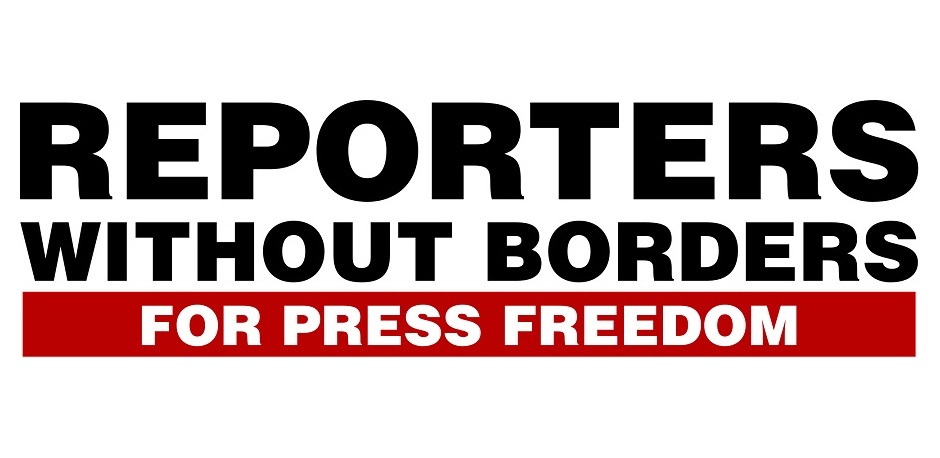BELGRADE, 7.12.2017. – The Association of Journalists of Serbia (UNS) learned that out of 14 killed and kidnapped journalists and media workers, Kosovo Prosecution is investigating seven cases, three are “in the process of hand-over” from EULEX, one is closed, while there is no information about the three remaining.
These are considerably different data compared to those UNS received from EULEX a month ago when we were told that there were only two open investigations.
– No case is closed for us. We consider them open until we find new evidence about perpetrators, which would ultimately lead to the formation of indictments – explained to UNS Aleksandar Lumezi, Chief Kosovo Prosecutor.
The excuse for discrepancies in information is a complex procedure of duties’ hand-over from institutions responsible for the rule of law: the police, the prosecution, and the judiciary from UNMIK to EULEX, to the institutions of Pristina.
But if we compare the dates of closures and “disappearance” of investigations about our colleagues, it is obvious that most of them have been ignored or stopped by international prosecutors.
Obstruction of justice – the police does not respond to the prosecution’s request
The information the UNS obtained its investigation also points to the criminal offense of interfering with justice, as it happened that the police, while under the supervision of UNMIK, did not act on the prosecution’s request. Namely in cases of the murder of well-known Albanian journalists, close to Ibrahim Rugova who advocated a peaceful solution for the conflict in Kosovo, a political opponent to Hashim Taçi and Azem Sula.
Shefki Popova, a journalist of “Rilindja,” was killed on September 10, 2000. The data collected by the UNS Dossier shows the investigation existed. The case, PPN 306/2000, until June 12 of this year was in the Prosecutor’s Office of the Basic Court in Mitrovica. Prosecutor Nijazi Rexha twice requested emergency assistance from the police; first time on October 5, 2000, and second time on March 23, 2004. The police, at that time in UNMIK hands, ignored this request. Just as the police under UN supervision without any responsibility did not move a finger, the case also, without consequences – “disappeared” under the supervision of the EU. Hence, since 2008, the EU mission in Kosovo rehashed to the UNS the same answer about the murder of Shefki Popova: “We have no information.”
In the same way, at the time of UNMIK’s jurisdiction, Kosovo police proceeded to investigate the murder of Barduhl Ajeti (June 3, 2005), a journalists and columnists of “Bota sot” who supported the campaign of international forces to arrest former KLA members involved in the crime. The UNS investigation data unequivocally shows that the competent prosecutor Afrim Shefiku filed a request for additional information, sending urgent request twice to the police. There were no replies. The investigation about the murder of Ajeti is conducted in three cases (PPNI 84/2005, 87/2005, 93/2005), until finally, on December 11, 2006, UNMIK put an end to the investigation
An investigation after nine years
Open EULEX investigations about kidnappings of journalists are actually a “discovery” of the past month, found by the EU mission after many years, and after the UNS faced them with the fact that documentation was with them. Investigations concern kidnappings of Pristina’s “Jedinstvo” journalist and “Politika” correspondent Ljubomir Knežević and RTV Pristina Mila Buljević employee. In Knezevic’s case, there is a suspicion, but in Buljević’s case it is known he was kidnapped by the KLA members in front of the witnesses in the center of Pristina.
UNMIK acknowledged it did not conduct an appropriate investigation, it apologized to their families, and the commission which evaluated the UN mission’s investigated stated this institution did not “make a substantial effort to systematically and in an coordinated manner investigate disappearances and killings of a large number of Kosovo Serbs in cases where apparently the investigation led to perpetrators suspected of being members of the KLA.”
Both of these investigations were lost in the rule of law transfer process from UNMIK to EULEX. Now, after lost nine years, the investigation is again at the beginning with the Special Prosecution Office of Kosovo, now under the jurisdiction of Pristina. Prosecutor Drita Hajdari is in charge of the investigation of Knezevic’s kidnapping (PPP 33/17), and prosecutor Elex Blakaj is in charge of Milo Buljević’s kidnapping (PPP39/17).
UNMIK did nothing to carry out an effective investigation about kidnapping of Radio and Television of Kosovo journalists – Marjan Melonasi, in September 2000, and their police needed five years to report the abduction. For already two year the case is with the Basic Prosecution Office in Pristina, since March 12, 2015, and the answer we received about it was “the investigation is ongoing.”
The cases were closed by international prosecutors
The murder of journalist and translator Aleksandar Simović Sime in 2000, the only murder case the EULEX was investigating as a war crime is “in the process of hand-over” to Kosovo institutions.
On 23 October 2013, the international prosecutors of the Special Prosecutor’s Office of Kosovo (then headed by EULEX) suspended the investigation of kidnapping of journalists of Radio Pristina Ranko Perenić and Đura Slavuj (case PPP 147/2009), kidnapped on August 21, 1998 in Velika Hoča – Zočište. One month before, and after the UNS insisted, on November 3, 2017, EULEX handed over the same case to the Kosovo Special Prosecutor’s Office, from 2016 under the jurisdiction of Pristina.
All documents from the investigation were not automatically taken from UNMIK through EULEX, to Kosovo authorities, including those from the Kosovo Special Prosecutor’s Office in charge of the most sensitive investigations of terrorism and war crimes. Is it a coincidence that so many well-known journalists got “lost” in this process, and that the killers and kidnappers are still at large?
New evidence is hard to get
Asked whether now, after so many years, the truth could be expected about the killing and kidnapping of 14 journalists and media workers in Kosovo, Aleksander Lumezi says “it will not be easy.”
“It is about cases occurred 18 or more years ago, it is very difficult to find evidence now. If this happens, rest assure we will raise indictments – concludes Lumezi.
The UNS’s research showed that in almost every investigation of kidnapping and kidnapping of journalists there were major omissions. About that in the next few days.
Two cases were suspended
EULEX and Kosovo prosecution offices also have dissimilarities in information about the murder of “Bota sot” journalist Xhemail Mustafa. Their data, however, coincides in two cases. An investigation about the murder of journalist Enver Maloku was closed on May 6 this year, and an investigation about the murder of Bekim Kastrati last March.
The Kosovo Prosecution Office does not have information on the murder of “Bujku” journalist Afrim Maliqi, about the editor of the program in Albanian language of RTV Pristina Krist Gegaj, and about photojournalist of “Politika” Momira Stokuća.
UNMIK does not know where the documents are
Contacts with UNMIK showed that their staff reduction means that those who work there today do not know what was happening few years ago, and they do not even know where to find documents. Even after several months, we did not receive information on murders and kidnapping investigations, and as explained to us that “for some reason, those who were responsible at the time did not do a good job.”
Why is it so, those who do work now do not know.UNMIK documents were officially handed over to EULEX nine years ago.
War Crimes Prosecution: Preventive Phases
To additional request of our colleagues for an interview with the chief prosecutor and for the information about investigations of murders and kidnappings of our colleagues, Serbian War Crimes Prosecution replied that they could not provide any information.
– In relation to your request dated November 8, 2017 and our reply of August 30, 2017, we are informing you that there the cases concerning the murder of journalists are in the pre-trial phase hence we cannot provide you with any information.








